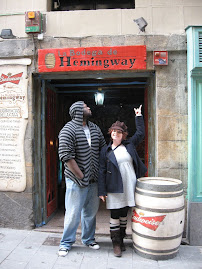Back to Foucault... and since it's been a couple months since I read what I underlined throughout the book, I'm going to start at the end of the chapter because Foucault tends to reiterate what he's stated in the final paragraphs:
"Is a medical experience [...] not bound up with the very structure of society? Does it not involve, because of the special attention that it pays to the individual, a generalized vigilance that by extension applies to the group as a whole? [...] [M]edicine becomes a task for the nation" (BC 19).
"The natural locus of disease is the natural locus of life--the family: gentle, spontaneous care, expressive of love and a common desire for a cure, assists nature in its struggle against the illness, and allows the illness to attain its own truth. The hospital doctor sees only distorted, altered diseases, a whole teratology of the pathological; the family doctor 'soon acquires true experience based on the natural phenomena of all species of disease" (BC 17). This passage makes the case, in a roundabout way, for a Humanities-based approach to autism/ disability studies. Too much of the discourses about autism is medicalized with the focus on the distorted and pathological.
"The chain of one disease engendering another, and that of he perpetual impoverishment of poverty, is thus broken when one gives up trying to create for the sick a differentiated, distinct space, which results, in an ambiguous but clumsy way, in both the protection and the preservation of disease" (BC 19). Foucault is establishing in this section the "birth of the clinic" as a "space" that isolates disease but not to the patient's benefit. And, while Foucault is showing how medical care was slowly isolated to specific "clinics" and argues in this chapter for a more "home-based" integrated-into-society approach to medicine and long-term care, care that isn't isolated from society in institutions creating individuals who are alienated and dependent on the state (I think), his point seems valid in regard to discussions on the treatment and institutionalization of autistics. Not sure if this point will end up being used later, but I thought it was an interesting passage all the same.
Thursday, July 19, 2007
Subscribe to:
Post Comments (Atom)








No comments:
Post a Comment